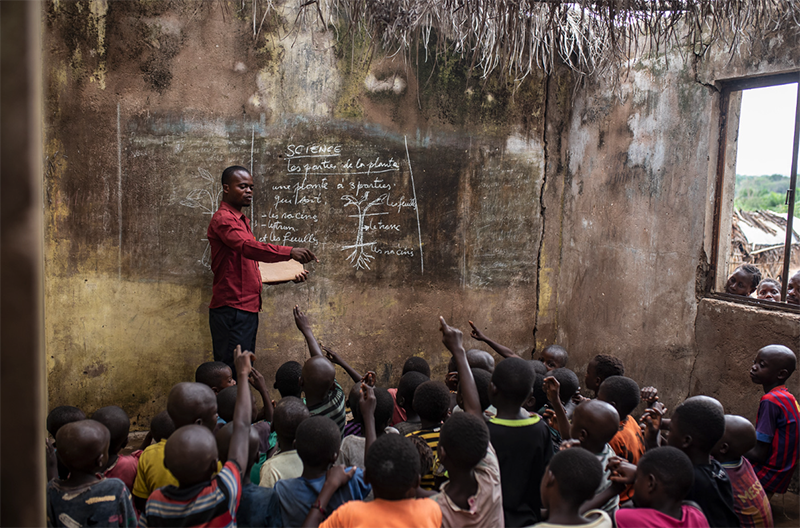 Literacy is the benchmark of healthy, informed and engaged societies. And for this reason, UNESCO-TWAS joins the international community in celebrating this year's International Literacy Day under the theme, Transforming Literacy Learning Spaces. It's an opportunity to rethink the fundamental importance of literacy learning spaces to build resilience and ensure quality, equitable, and inclusive education for all.
Literacy is the benchmark of healthy, informed and engaged societies. And for this reason, UNESCO-TWAS joins the international community in celebrating this year's International Literacy Day under the theme, Transforming Literacy Learning Spaces. It's an opportunity to rethink the fundamental importance of literacy learning spaces to build resilience and ensure quality, equitable, and inclusive education for all.
It is of particular importance to redouble efforts to advance literacy globally, especially in light of school closures and other setbacks faced by education institutions during the COVID-19 pandemic. Literacy is not only a set of basic reading and writing skills, but is part of a lifelong learning process. This includes digital literacy, media literacy and science literacy.
UNESCO adopted the definition of scientific literacy as clarified in 2009 by the Organisation for Economic Co-operation and Development: "an individual’s scientific knowledge and use of that knowledge to identify questions, to acquire new knowledge, to explain scientific phenomena, and to draw evidence-based conclusions about science-related issues, understanding of the characteristic features of science as a form of human knowledge and enquiry, awareness of how science and technology shape our material, intellectual, and cultural environments, and willingness to engage in science-related issues, and with the ideas of science, as a reflective citizen."
Evidently for TWAS, being The World Academy of Sciences, science or scientific literacy is a key area of focus. The Jeddah Declaration of TWAS Fifteenth General Conference, in fact, adopted on 4 November 2021, at TWAS Fifteenth General Conference, the Academy stated that “[s]cience institutions, in cooperation with policymakers, should promote basic and non-basic science literacy globally, at the level of laypersons, investing in and promoting science communication targeting scientists. Scientists' ability to convey the principles and outcomes of science is crucial in spreading, shaping and consolidating science literacy in non-scientific communities worldwide, ranging from policymakers to the general population.”
Among the many initiatives UNESCO is taking to mark the International Literacy Day, there is a two-day international event starting today in Côte d’Ivoire, in a hybrid online and in-person format, to reflect on how to leverage, adapt and transform literacy learning spaces. Part of the event will be the Award Ceremony of the UNESCO International Literacy Prizes 2022.

